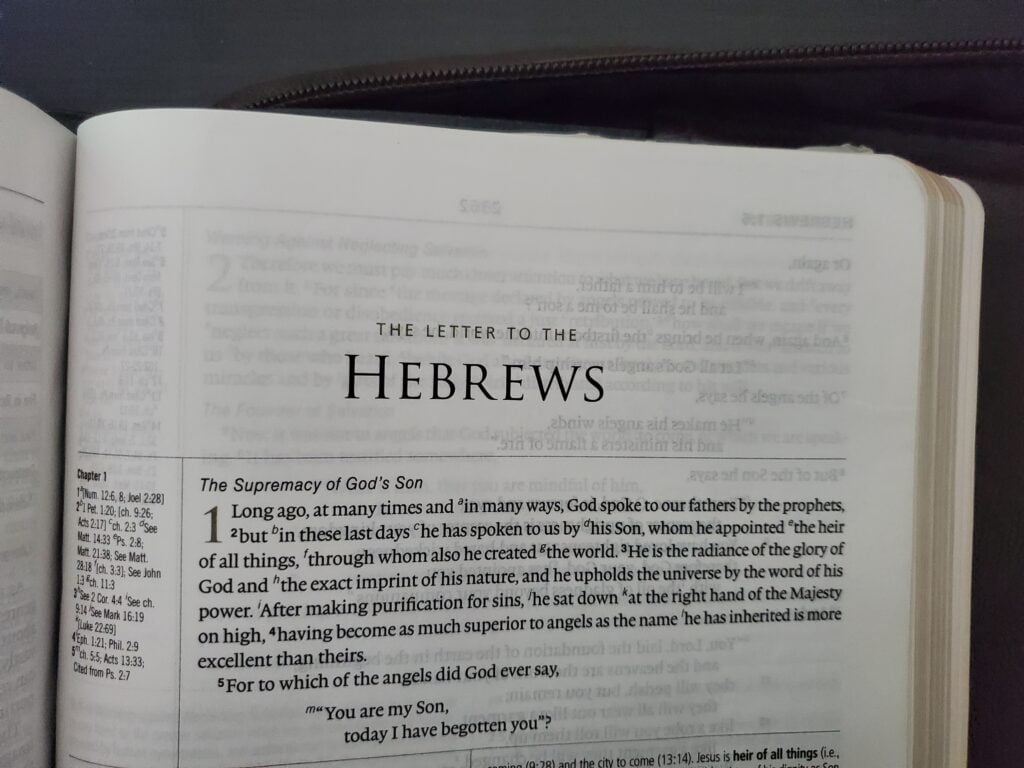⏱️ Estimated Reading Time: 5 min read
Hebrews 7:13-14, “For the one of whom these things are spoken belonged to another tribe, from which no one has ever served at the altar. For it is evident that our Lord was descended from Judah, and in connection with that tribe Moses said nothing about priests.”
How can Jesus be “our great high priest” (Hebrews 4:14) when He was descended from Judah? Weren’t priests under the Old Covenant descended from Levi? Jesus is descended from Judah, the line of kings (Genesis 49:10), but “in connect with that tribe Moses said nothing about priests” (Hebrews 7:14). So what is the purpose of this text, and why does it matter for us today? I believe that the author of Hebrews, anticipating an objection from Jews who did not accept Jesus as Messiah, is laboring in this passage to show how Jesus can be both priest and king.
This text comes in the midst of a discussion of the priesthood of Jesus as the “high priest forever after the order of Melchizedek” (Hebrews 6:20). The author of Hebrews is comparing the Levitical priesthood of the Old Covenant to the far superior priesthood of Melchizedek in order to display that superiority in the high-priestly ministry of Jesus Christ. Melchizedek is the mysterious priest-king of Salem mentioned only briefly in the Old Testament (Genesis 14:17-20). After Abram rescued his nephew Lot, Melchizedek, the “King of Salem,” came to Abram and blessed him, acknowledging that Abram’s God is “God Most High.” Abram then showed deference to Melchizedek by giving him a tithe of all of the spoil. The author of Hebrews draws out the significance of this tithe by arguing that Abram paying a tithe to Melchizedek showed the superiority of Melchizedek over Abram and his descendants (Hebrews 7:4-9). Therefore, according to the logic of Hebrews, the priesthood of Melchizedek is superior to the Levitical priesthood because Abram paid tithes to Melchizedek. This Melchizedekian priesthood does not come from physical descent, but “by the power of an indestructible life” (Hebrews 7:16). In other words, Jesus is a priest after the order of Melchizedek, not because He is physically descended from Him, but because Melchizedek was a type pointing forward to Jesus (Hebrews 7:2-3). Jesus is the true king of peace and king of righteousness, of which Melchizedek was a shadow (Hebrews 7:2). God Himself bore witness that Jesus is a priest forever after this order (Psalm 110:4, cf. Hebrews 7:17). Therefore, Jesus is our great high priest, not after the order of Levi, but after the far superior order of Melchizedek.
What does this mean? It means that Jesus can be both our king and our priest. That’s a remarkable thing and completely unprecedented and biblical history. When kings tried to be priests, it didn’t work out so well – just ask Uzziah (2 Chronicles 26:16). But as was foretold in Psalm 110:4, God sent his own son into the world to be our king-priest. As our king, Jesus is the one with all authority in heaven and on earth (Matthew 28:18). He is the lion of the tribe of Judah, the perfect king who rules with justice and righteousness, of which even the best kings of Israel were but a faint shadow. We bow our knee in allegiance to King Jesus and commit our lives to his sovereign authority.
As our priest, Jesus is our mediator who stands between God and us. He offered the perfect sacrifice for our sins by offering himself as a propitiation for us on the cross. As a priest in the order of Melchizedek, Jesus’ priesthood is far superior to the Levitical priesthood. He does not need to offer sacrifices every year, because his One sacrifice on the cross was sufficient for all of the sins of everyone who would trust in him. He has no need to offer a sacrifice for his own sin, because he is the perfect, spotless lamb of God (Hebrews 7:27). Because of this, “He is able to save to the uttermost those who draw near to God through him, since he always lives to make intercession for them” (Hebrews 7:25).
So why does any of this talk about an obscure king from the Old Testament named Melchizedek have any relevance for us today? It’s significant because this passage shows us how Jesus can be both our King and our Priest, our Ruler and our Representative, our Sovereign Lord, and our Sympathetic Friend. What an incredible reality it is that we do not have a one-dimensional relationship with Jesus, but he fulfills both of these offices perfectly. Please spend some time today meditating on what it means for Jesus to be your king and your priest. Worship Him for what he has done to reconcile you to God. Please live your life and obedience to the righteous laws of King Jesus and trust that his once-and-for-all sacrifice and continual intercession as your priest are sufficient for all of your sin.



